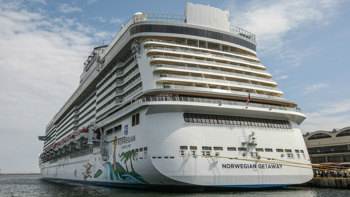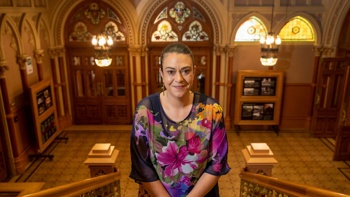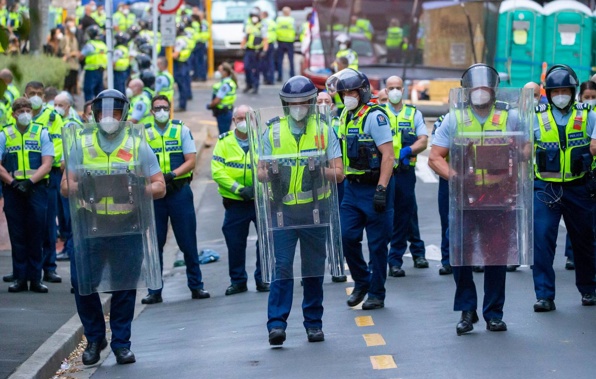
As police moved to shut down the 23-day anti-mandate protest on Parliament's lawn, a riot broke out amid fire, violence and mayhem. A detective, injured after a protester hurled a heavy paving stone, talks exclusively to Carolyne Meng-Yee about a day he will never forget.
Pelted by a paver, unable to move, a frontline police officer fell to the ground thinking he might die.
When he looked up, the sky was raining bricks and flaming projectiles against his plastic shield. It was, in his words, "a war zone".
Speaking for the first time since he was injured, the detective, whom the Herald on Sunday has chosen not to name, says watching the increasingly violent anti-mandate protest on Parliament grounds unfold didn't sit well with him. With his wife's encouragement, he put his hand up to go to Wellington to join his colleagues on the frontline.
"I was angry we were being treated like that. I wanted to do my bit. This protest had all the hallmarks of the Capitol siege when protesters tried to overturn Trump's defeat – the violence, the anger, the intense hatred from the disenfranchised and the rabid right-wing. We had a unique opportunity and some of us were champing at the bit to go there in whatever capacity."
On Wednesday, March 2, hundreds of police clashed with rioters at Parliament grounds in Wellington as tensions escalated. Eighty-seven people had been arrested for a range of offences, including wilful trespass, possession of restricted weapons, obstruction, wilful damage, assaulting police, and refusing to provide identifying details. Seven officers were injured as police attempted to shut down the protest that day.
The detective who has worked on high-profile murders and large-scale international events said the riots reminded him of war in Mogadishu. As a flying paver struck him, he thought his number was up.
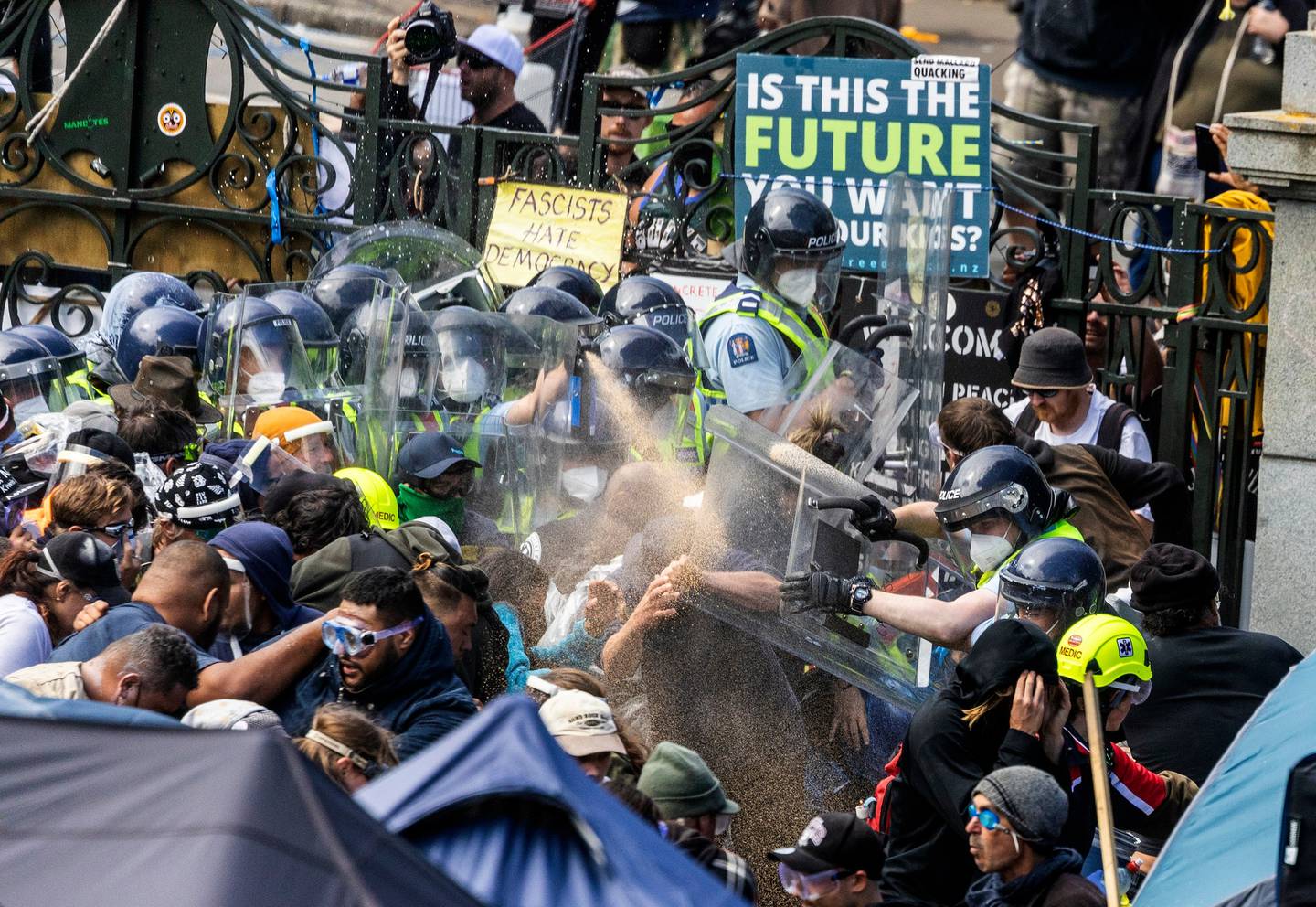
Police clash with protesters while clearing Parliament grounds. Photo / Mike Scott
"I couldn't move. If I wasn't wearing my riot gear, I would be six feet under. The bricks were about four kilos but it's the momentum of them flying at you. Once we had our shields up, we were advancing and pushing them back. But when they picked up pavers off the footpath and started biffing them at us, they blew through some of my colleagues' shields. The momentum and weight of the objects blew the shields out of our hands. The shields are quite sturdy but it wasn't enough.
"We were pelted with everything, iron bars, fire extinguishers, paint-filled projectiles, trestle tables, gas bottles, cones, bricks – anything they could get their hands on. If you looked up at the sky it was falling with projectiles, there was no way you could dodge one they were coming in all directions. I knew if they got me, they would kill me."

Police gather during the early morning operation. Photo / Mark Mitchell
His wife had no idea her husband had been hurt. She had spoken to him earlier in the day and thought his shift was over.
"It was devastating watching the TV not knowing if my husband was injured or not," she said. "I couldn't reach him and when I found out he was one of many officers who were hurt it really upset me."
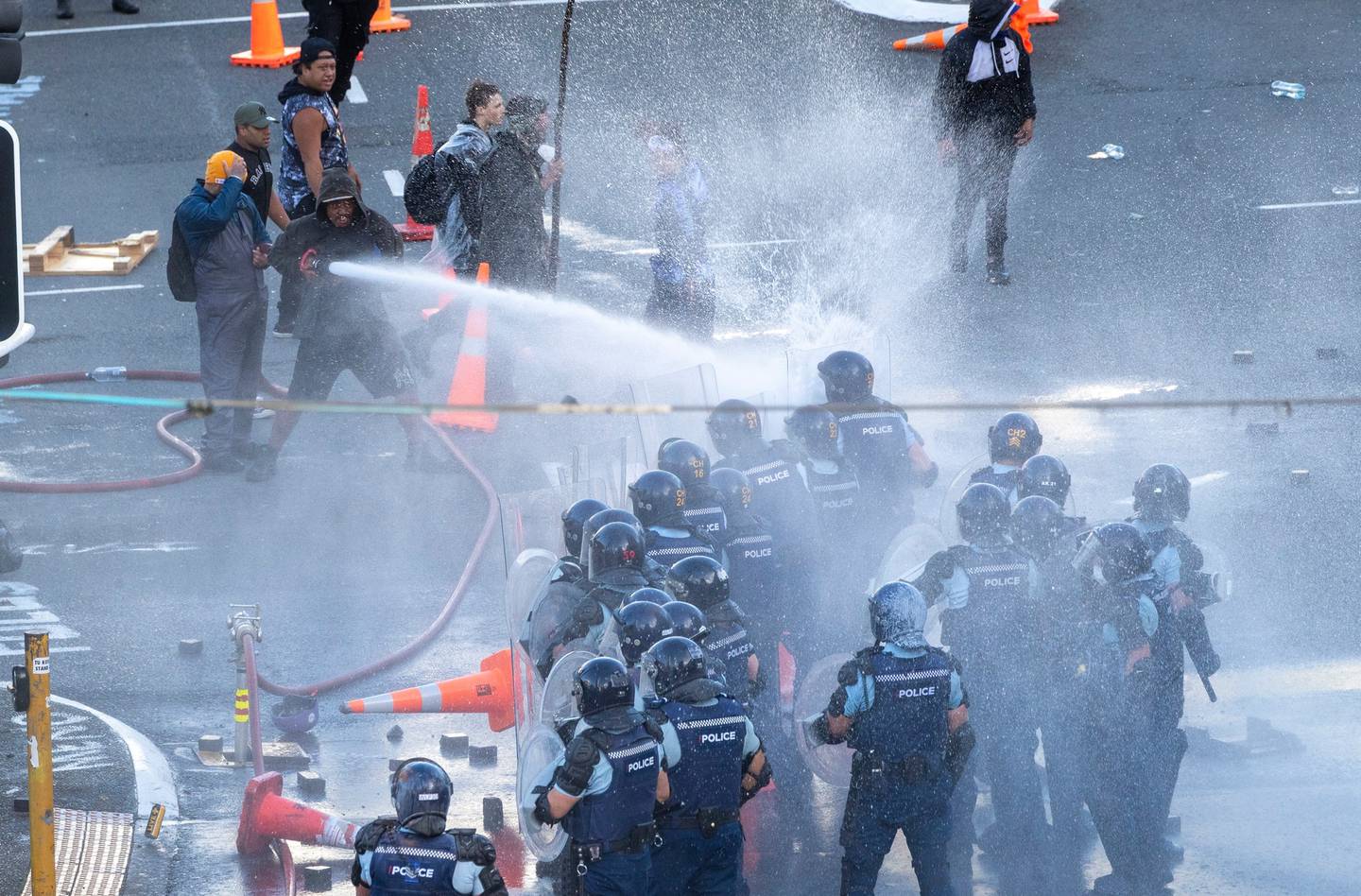
Police officers have a fire hose turned on them by protesters on Bowen Street on day 23 of the protests. Photo / Mark Mitchell
Throughout the riot, as police were being attacked, the officer's colleagues remained resilient. They held the line.
"We had to stay in the fight and we are only as strong as the weakest person that gives up on that line," he says. "There was a real sense we needed to keep to our line and stick together. It was 'push, push, push, hold'. Inch by inch the guys kept their line and they kept their cool. On TV, you see we are not doing anything. We are standing there with our shields, we're not firing rubber bullets, we weren't picking up bricks and throwing them back. We are standing there and taking it."
As riot police came closer to regaining access to Parliament grounds, tents were set on fire by protesters and a nearby playground was targeted by arsonists. Attempts were also made to burn down the Old Government Buildings, now housing the Law School.
"You could hear these massive explosions; the protesters were biffing LPG bottles into the fire. The toxic fumes and smoke made it hard to breathe. The firemen had tanks and breathing apparatus, we had a Covid mask but no purifying respirators to filter the fumes. Our guys were coughing and spluttering but they were still holding their line. The rioters were incensed. I have never seen that level of rage, violence and intent to cause damage. It's lucky no one died."
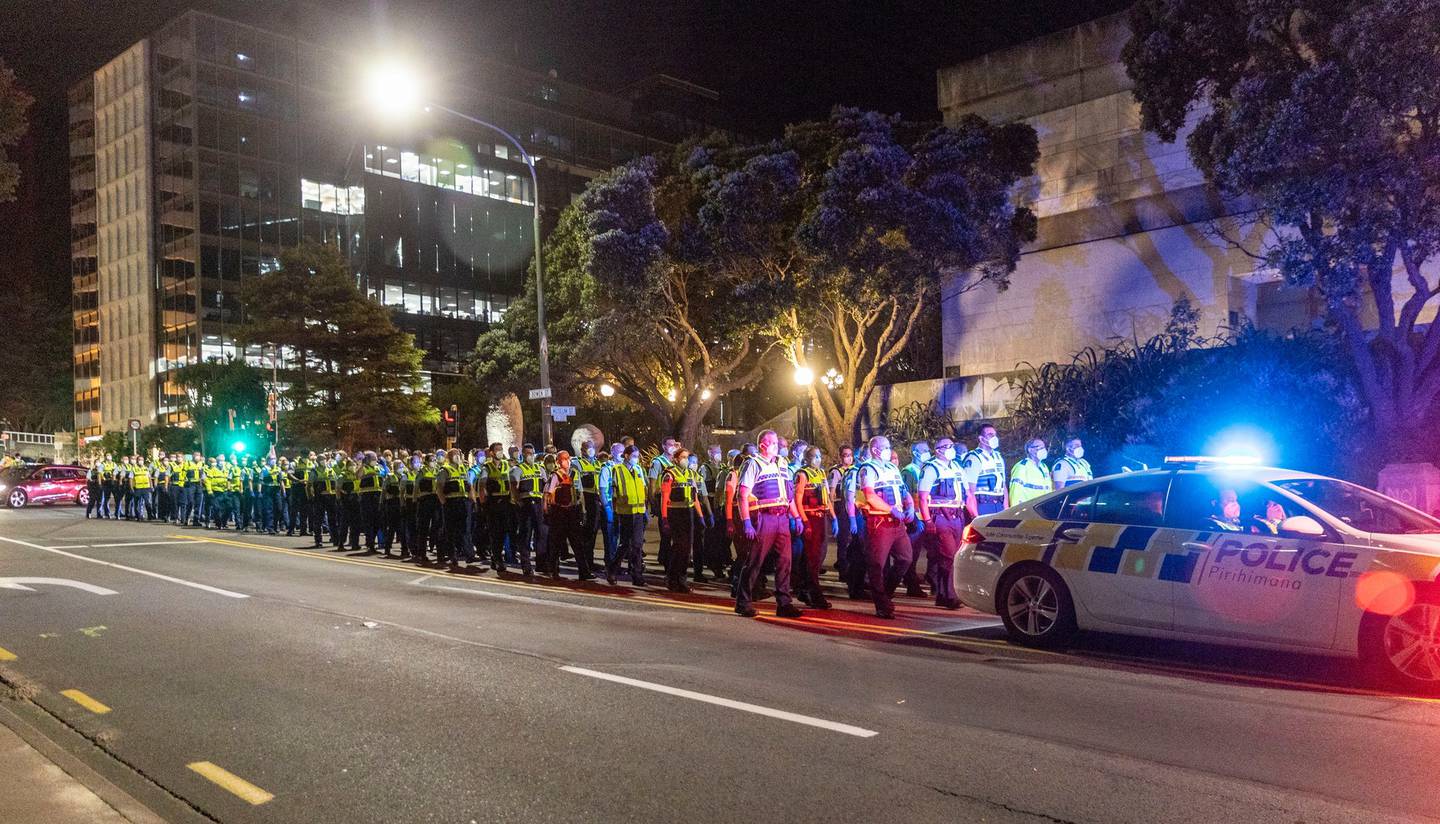
Police came from all around the country to help reclaim Wellington's streets. Photo / Mike Scott
The detective said once the peaceful protesters had left, a "mishmash" of malcontents fuelled the occupation and were intent on creating mayhem.
"There were paedophiles, gang members, and criminals on the national register - they're not freedom fighters. On my line, there was a little girl whose face was pressed against a shield. Her mum was beside her kicking and screaming, 'F*** you, you are ruining the country'. All the weight of the protesters was pushing up against them. The tone was aggressive and I thought, 'why are parents putting their children at risk, why bring them here?'"
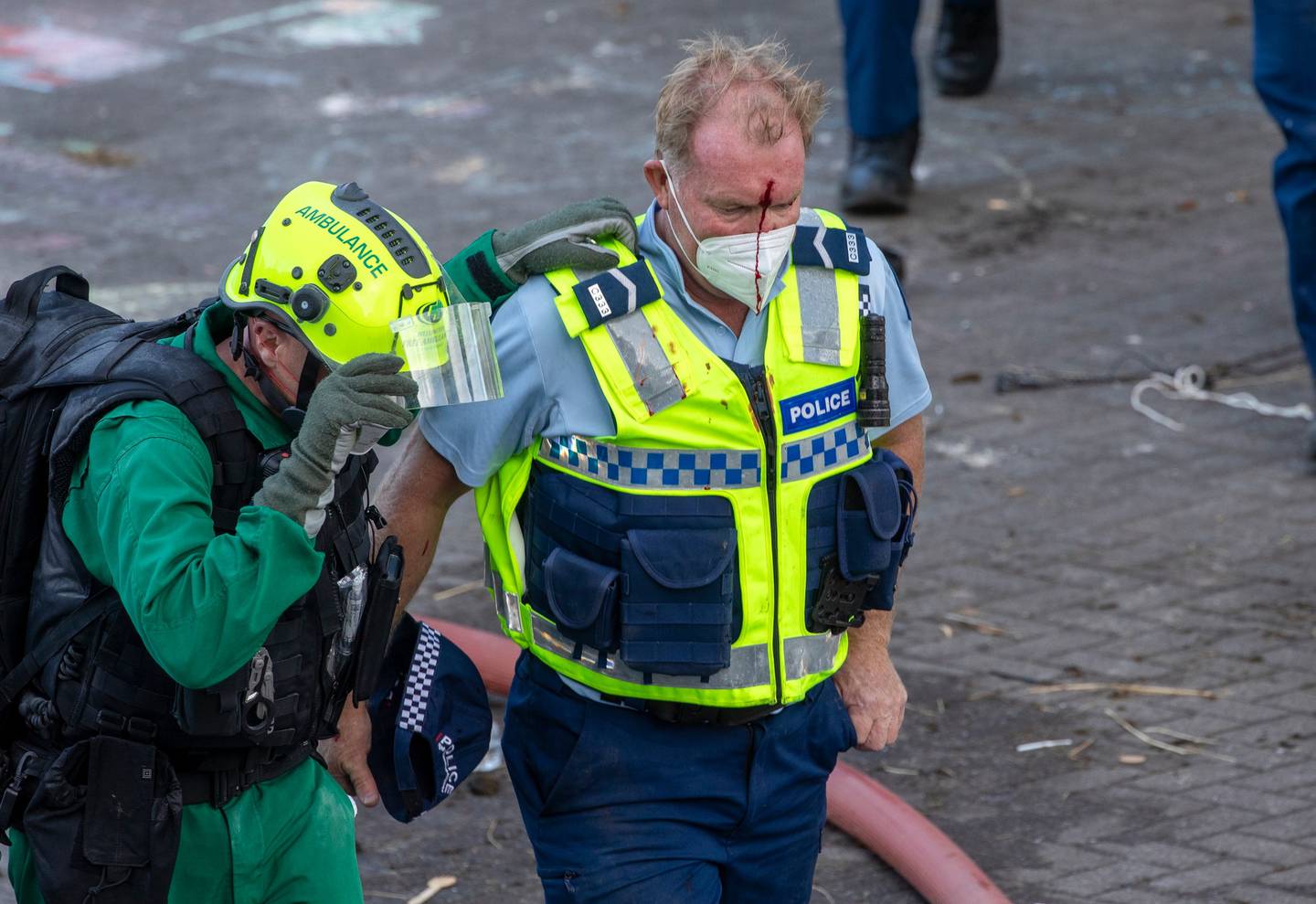
An injured officer is assisted by paramedics. Around 40 police officers were injured that day. Photo / Mark Mitchell
And in the background was the lurking threat of Covid-19. The officer's wife and family suffer from respiratory issues and, working at a protest of hundreds of unvaccinated people, the officer wondered when it would be his turn to become infected. Every morning there was a roll call of officers who had dodged Covid and the unlucky ones who didn't.
"That threat was real. Six of my mates tested positive. Every day I was faced with a feral sea of Covid. Some of the protesters tried to pull down our shields, punch us and grab our helmets and pull off our masks. Some of our guys used pepper spray on the protesters, they spat at us and said 'have a taste of this spray'."
Although there was criticism directed at Police Commissioner Andrew Coster, for not "going hard and early," the detective says he respected his boss' considered approach, his humanity, and is encouraged by how policing has evolved.
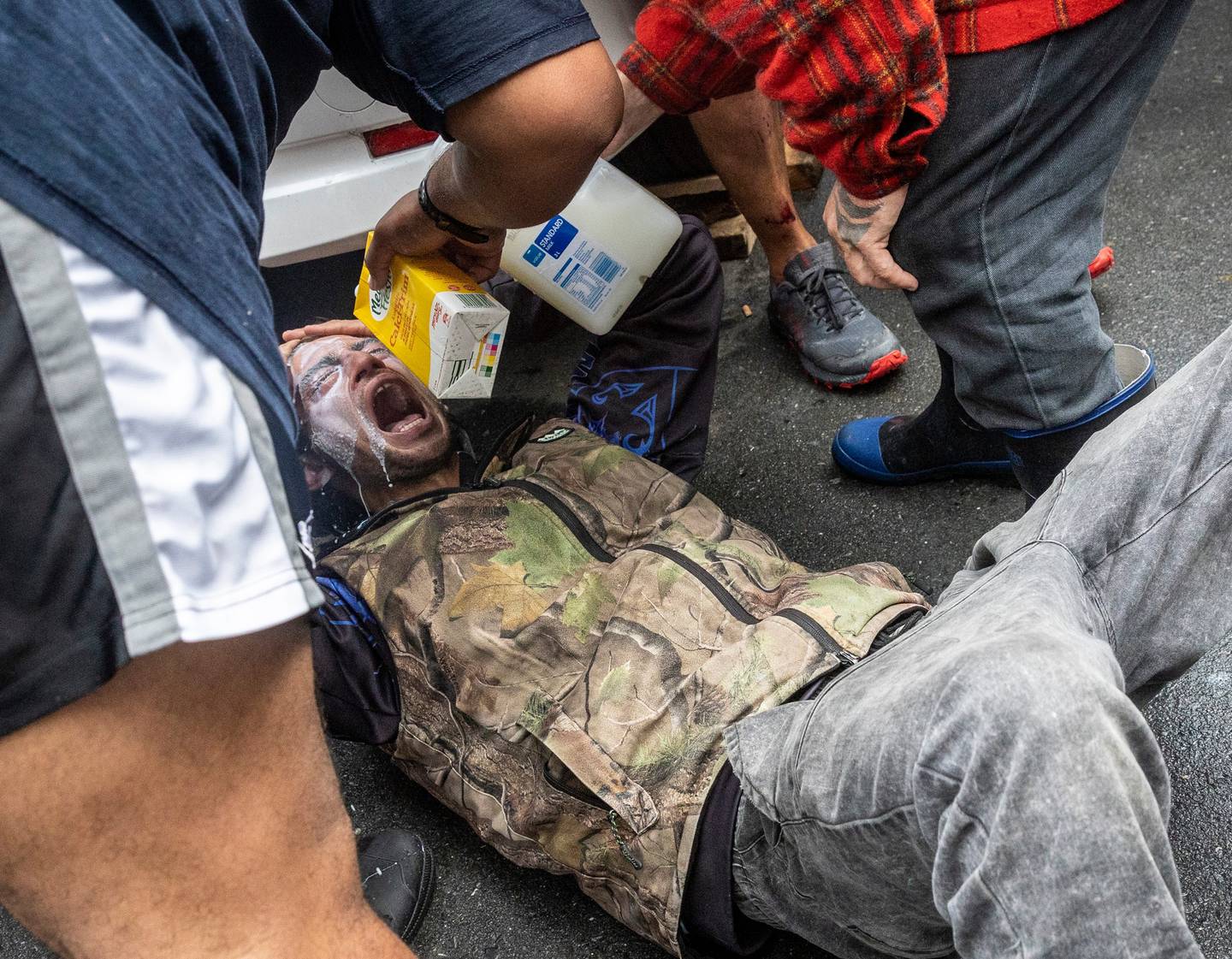
Protesters used milk to ease the symptoms of pepper spray. Photo / Mike Scott
"There was a lot of talk that he [Coster] was too soft and should've taken a harder line but the protest began peacefully until the disenfranchised dug their heels in. Looking back, we have come such a long way in terms of accountability for our actions, you don't want to let the team down. You are really aware of how things may look and how things are perceived We are more open and show our emotions. Back in the day, it was 'harden the f*** up'."
Back at home, the detective has recovered and is reflecting on the history-making day, and the part he played.
"It was probably the best day in my career standing next to these guys who had your back and you had theirs. We had a common cause and we were there for each other. It was a sad indictment on our society but I feel really proud to have stood up and be counted."
Take your Radio, Podcasts and Music with you








